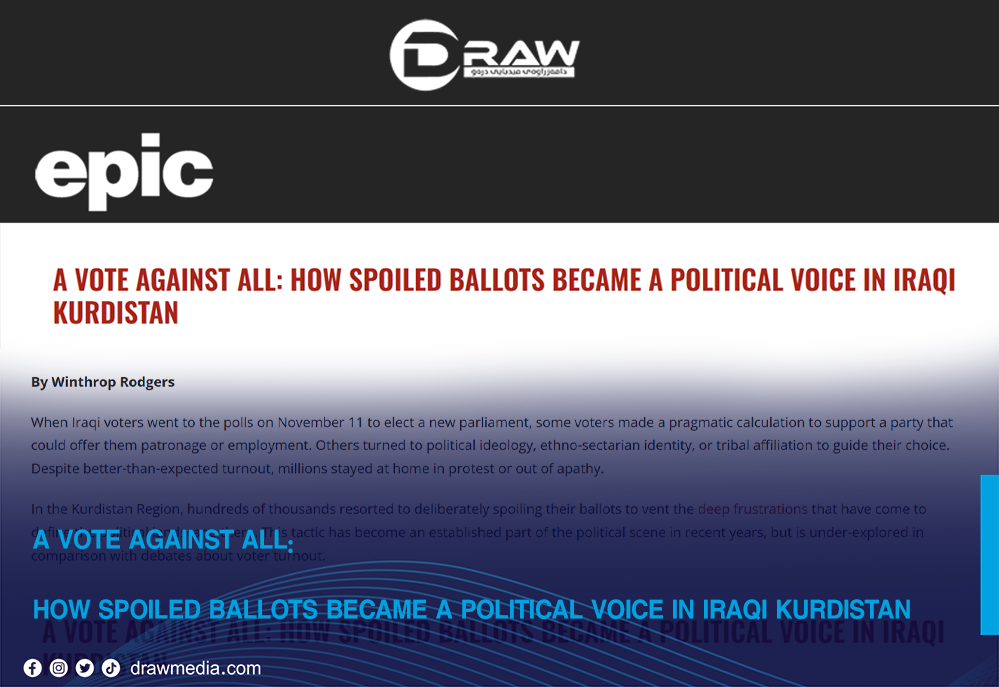Kurdistan Region's Oil Pipeline
.jpg)
2022-02-22 14:29:33
Draw Media
The Kurdistan Regional Government (KRG) created the Kurdistan Oil Pipeline and sold it in 2017 for one billion and 700 million dollars, but from the beginning of 2019 to mid-2021 the government paid $1 billion and $744 million to the rent of the oil pipeline.
In Kurdistan Region's oil revenues in 2021 were $4 billion and $108 million, only one billion and 725 million dollars were for the government's treasury, and 454 million dollars alone were for the oil pipeline rent, which is 11 percent of the revenue.
Ownership of Kurdistan region oil pipeline
According to a statement from a member of Kurdistan Parliament, Ali Hama Salih, regarding the Kurdistan oil pipeline and the region's oil transport fee. The oil pipeline in the Kurdistan Region has been under construction since 2010, and at the end of 2013, the Kurdistan region's oil was transported to the Turkish port of Jayhan for the first time.
According to the information, Kar Group built the oil pipeline, which was coasted 600 million dollars and 40 percent of the pipeline is owned by the company.
60% of the region's oil pipeline is owned by the Russian company Rosneft, when on June 2, 2017, in San Petersburg, in the presence of the KRG president and his deputy and minister of natural resources in The eighth cabinet, signed a contract with Rosneft's executive director. A part of which was the sale of 60 percent of the Kurdistan oil pipeline to Rosneft for 1 billion and 700 million dollars.
The length of the Kurdistan Region's oil pipeline is 896 kilometers, starting at the Kurdistan Region's border at the Khurmala field and passing through (Erbil, Bardarash, Ain Safni, Jabal Kand, Alqush, Duhok, and Silvan) and it’s 221 kilometers till reaches Fishkhabur. According to which 24.6 percent of the oil pipeline is on the Border of the Kurdistan Region, owned by both companies Kar and Rosneft.
The part of the oil pipeline on the Turkish border, owned by the Turkish energy company Botash, is extended from Fishkhabur to the Turkish port of Jayhan, which is 74.6 percent of the overall pipeline length.
According to financial statements by the Singapore branch of Rosneft, the company has given 250 million US dollars to an external consultant to ensure that they get the oil agreements in the Kurdistan Region.
The region's oil pipeline to The Turkish Port of Jahan
The cost of transporting the region's oil through the Kurdistan Region pipeline
According to Deloitte's reports on 1/1/2019- 30/6/2021, the KRG exported 393,528,260 barrels of oil through pipelines to the world markets. According to the company's report, 1,744,391,437 dollars have been spent as oil transport fares through the pipeline, which is 4.4 dollars per barrel.
The cost is more than the amount the KRG received in 2017 by selling the Kurdistan oil pipeline to Rosneft, which amounted to $1 billion and $700 million, as we mentioned above.
The cost of transporting the region's oil through the oil pipeline constantly rising.
According to Deloitte's reports from the beginning of 2019 to the first half of 2021, the rise of the cost of transporting oil is clearly seen, for example in Deloitte's first report, which explained the details of exporting oil process during (1/1/2019- 31/3/2019).
The KRG’s transport fee of one barrel of oil was 3.2 dollars on the KRG, but in the latest report of the audit company during (1/4/2021 - 30/6/2021) the transportation fee of one barrel of the region's oil was increased to 6.1 dollars.
In a way that (1/1/2019 - 31/3/2019) the total cost of oil transportation of the region was (122,055,061) dollars on the KRG, but the latest Deloitte report focused on the KRG's total oil transport fee was (238,932,863) dollars during the period 1/4/2021- 30/6/2021.
The Kurdish parliament member, Ali Hama Salih stated that from 2020 till the mid of 2021, a year and six months, (1 billion and 584 million DOLLARS) were paid for the region's oil transport through pipelines.
In 2020, 21.3 percent of the total oil revenues were paid to the region's oil pipeline. When the Kurdistan region's border pipeline is only 24.6 percent of the total length of the oil pipeline from Khurmalawa to the Port of Jayhan but 70 percent of the total transport fee has been paid to this part.
Based on the information, 70% of the oil transport fees have gone for (Kar and Rosneft) companies and only (30%) to the Turkish energy company.
Is it possible that the oil pipeline at the Turkish border to be twice as much as an oil pipeline on the border of the Kurdistan Region, but the pipeline fee will be much higher than the Turkish border?




.jpg)

.png)
.jpg)

.jpg)
.jpg)